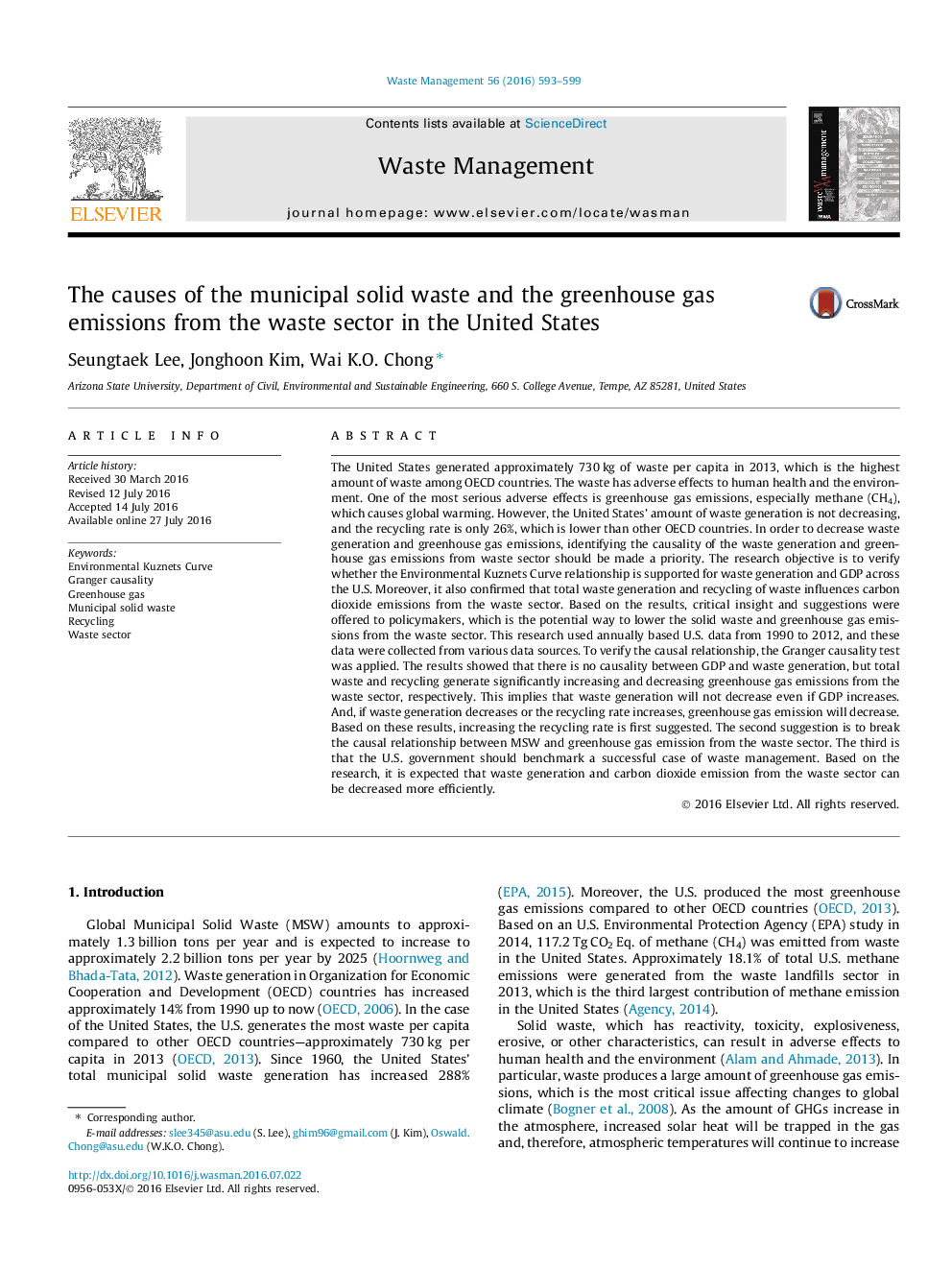| کد مقاله | کد نشریه | سال انتشار | مقاله انگلیسی | نسخه تمام متن |
|---|---|---|---|---|
| 4471169 | 1622630 | 2016 | 7 صفحه PDF | دانلود رایگان |
Highlight
• Causality related to MSW in the US was confirmed with the Granger causality test.
• Causal relationship between MSW and GDP per capita was validated.
• The impact of waste generations on the waste sector’s CO2 emission was verified.
• Proper suggestions were provided for policymakers to decrease MSW and CO2.
The United States generated approximately 730 kg of waste per capita in 2013, which is the highest amount of waste among OECD countries. The waste has adverse effects to human health and the environment. One of the most serious adverse effects is greenhouse gas emissions, especially methane (CH4), which causes global warming. However, the United States’ amount of waste generation is not decreasing, and the recycling rate is only 26%, which is lower than other OECD countries. In order to decrease waste generation and greenhouse gas emissions, identifying the causality of the waste generation and greenhouse gas emissions from waste sector should be made a priority. The research objective is to verify whether the Environmental Kuznets Curve relationship is supported for waste generation and GDP across the U.S. Moreover, it also confirmed that total waste generation and recycling of waste influences carbon dioxide emissions from the waste sector. Based on the results, critical insight and suggestions were offered to policymakers, which is the potential way to lower the solid waste and greenhouse gas emissions from the waste sector. This research used annually based U.S. data from 1990 to 2012, and these data were collected from various data sources. To verify the causal relationship, the Granger causality test was applied. The results showed that there is no causality between GDP and waste generation, but total waste and recycling generate significantly increasing and decreasing greenhouse gas emissions from the waste sector, respectively. This implies that waste generation will not decrease even if GDP increases. And, if waste generation decreases or the recycling rate increases, greenhouse gas emission will decrease. Based on these results, increasing the recycling rate is first suggested. The second suggestion is to break the causal relationship between MSW and greenhouse gas emission from the waste sector. The third is that the U.S. government should benchmark a successful case of waste management. Based on the research, it is expected that waste generation and carbon dioxide emission from the waste sector can be decreased more efficiently.
Journal: Waste Management - Volume 56, October 2016, Pages 593–599
